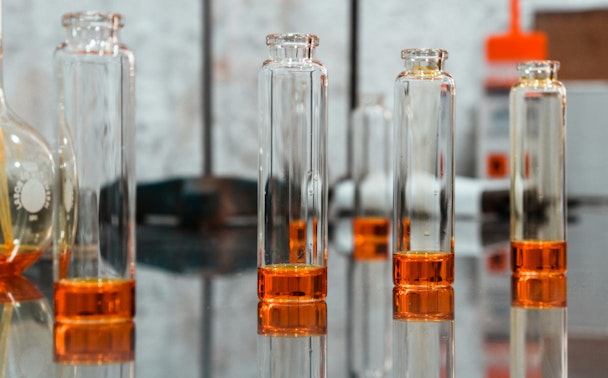Nail your next chemistry meeting: new business experts share their advice
It’s not easy out there, so we’ve compiled some advice from new business experts about best (and worst) pitching practices. This time, we look at how to crack chemistry sessions.

Intermediaries share their best tips for nailing a chemistry session with a new client / Unsplash
Pitch processes vary between clients and categories, but one element is almost always present: chemistry.
The chemistry stage of a pitch can mean one or several meetings between an agency and a client. They’re for teams to get to know each other, but they’re also where pitches are often won and lost. “Chemistry is almost more important than anything else in terms of how well an agency and a client can work together,” says David Muldoon of Medialink. “If you can get through the chemistry stage, you’ve almost made it.”
“Chemistry is fundamental,” agrees Russell Oakley of intermediary The Go Network. Approaches to this phase can differ, but whichever angle an agency chooses to take, picking the location carefully is important.
Advertisement
Muldoon says Medialink recommends going for a meal with clients to get to know them personally. “Let’s sit around a table together, chat one-on-one and find out if there’s genuine chemistry there,” he says.
Not every intermediary or pitching consultant recommends that course of action, though. AAR’s Rebecca Nunneley says: “I’ve never done a chemistry meeting in a restaurant. I would never recommend it.”
Instead, she says it’s crucial to get clients into an agency’s building. The most important thing at chemistry is for the client to get a feel for the agency and the best way you’re going to get a feel for that is if the meeting takes place at the agency’s offices,” she says.
Advertisement
Clients will likely prefer to see an agency’s office as it is on a normal Tuesday. So, while it probably pays to give the place a quick hoover, don’t indulge in set dressing.
“It’s about getting across your personality,” says Oystercatchers’s Gill Huber. “Make sure you’ve got enough time for a conversation rather than just presenting. “
Being a good host, Nunneley says, is more important than stage tactics. “Go and meet clients in reception when they arrive; don’t leave them waiting there for 15 minutes. And when you go down and meet them, have something to say. It’s a really nice opportunity to start a conversation in a relaxed setting. Start to build that chemistry right from the moment that you meet them. And don’t send the most junior member of the team down. You’re the CEO – go and meet them yourself.”
Suggested newsletters for you
One topic at the front of many marketers’ minds, inevitably, is AI. Even if you find the subject tiresome, it’s worth grasping the thorn. “Everyone is talking about it is going to affect everyone’s business,” says Huber. Even if your agency isn’t developing a specific AI service, they’ll be interested in your take. “Clients want to understand what an agency is doing with AI, what their point of view is and what their plans are. It’s definitely something people will need and I would urge everyone to have an opinion on.”
Chemistry with your own colleagues matters as much as chemistry with clients, notes Nunneley. Marketers will be looking to understand dynamics within teams, so they’ll be scanning for clues about how staff (especially junior employees).
“How you interact as a team is probably the most important aspect of chemistry. Look supportive when your teammates are presenting,” she says. “There’s a difference between talking over colleagues versus finishing their sentences and building on points.”
Oakley says senior staff should ensure they don’t dominate proceedings. “It’s quite often, certainly with independent agencies, that the MD or the co-founder or the founder of the agency will take the lead. If they’re not careful, they will find themselves doing 90% of the talking,” he says.
To avoid that fate, he recommends assigning everyone involved in a pitch a predetermined role. “Take some time prior to a chemistry call to pick the right team and then be almost sort of designate roles and topics and areas of conversation that that person is going to speak about,” he says.
And if your team is mostly remote or works with a hybrid arrangement, invest in the time required to build up in-person dynamics. Nunneley says: “Before chemistry meetings, spend time as a team, go out for dinner, get to know each other, build that chemistry among yourselves.”

